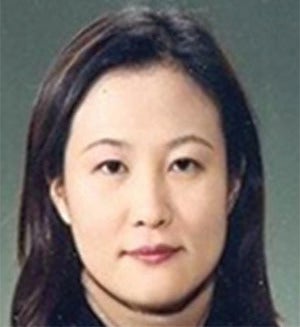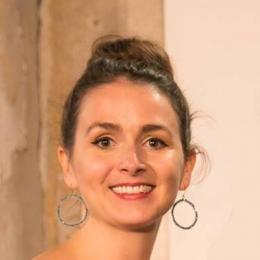
Jieun Lee
GENERAL COUNSEL
ROOF FUNDING*
SEOUL, SOUTH KOREA
Jieun Lee relied on her network of connections to secure her current position as general counsel. It’s only fitting because she now works for a company that also uses connections to reach its goals*. Roof Funding, a leading South Korean fintech company, operates peer-to-peer (P2P) networks that allow its users to decrease borrowing costs by crowdfunding loans.
Rather than rely on banks or lenders for a loan, borrowers can turn to an online network of undisclosed investors who each contribute varying amounts of money to the loans of their choice. The transactions occur between the users, as opposed to a centralized administrative system like a bank. Eliminating the middleman and overhead reduces the interest rate for a home loan from the average four percent to one.
Most founders of P2P lending companies come from the IT or technology industries. The CEO and co-founder of Roof Funding, on the other hand, has a “keen sense of financial understanding,” as he previously worked at Goldman Sachs in South Korea, Lee says.
The respect is mutual. Lee, who also has a robust knowledge of fintech from spending a decade in the financial law arena, impressed her boss, who has helped her add boardroom experience to her CV. This past March, she was appointed to the board of directors so she can have a more active role in shaping the organization. Before this promotion, Lee worked strictly as a general counsel and compliance officer. Now, she has a more expansive role that works across departments, engaging with HR, developing business strategies, and creating Roof Funding’s corporate governance model.
To design a comprehensive governance model, Lee turns to her varied experience in several industries, which helps her to analyze financial and lending legislation through different lenses. By merging her knowledge of these regulations, she has created a well-rounded governance model — no easy feat in a burgeoning industry.
Adding fuel to the fire are the notoriously complex financial regulations. Since South Korea only has one P2P regulation — which doesn’t specifically monitor P2P lending businesses — Lee and her Roof Funding team must anticipate future regulation while complying with current laws. “It’s a daily challenge to abide by the existent traditional financial regulation as well as building the innovative opportunities to make P2P lending more efficient,” she confides.
Despite the lack of current P2P regulation, there are two other legislations pending right now — and Lee and her team are watching them closely to see how they’ll impact the industry. “We are trying to find the optimal models for the Korean financial P2P lending business now,” she explains. In fact, beyond creating a governance model for her employer, Lee has also had the opportunity to draft a P2P lending act alongside a member of congress who is steeped in the investing and startup world. “This is a very inspiring moment for us to study different jurisdictions and legal points of the P2P lending business,” she says.
Lee is a lifelong student. Her never-ending mission to learn more about fintech and various legal jurisdictions drove her to join the P2P Study Group, led by a Hankyong University professor who was once the former counsel for South Korean President Moon Jae-in. Last year, Lee also earned a doctorate degree from Ewha Womans University in South Korea. Her thesis compared South Korean payment system regulations to foreign ones. In addition to her law degree and new doctorate, she had already earned two master’s degrees: one in South Korea, where she focused on constitutional law, and the other in the United States, where she earned an LLM in financial and security regulation at Georgetown University.
Lee, who unabashedly admits she loves learning, doesn’t hoard degrees for the thrill of it. To her, it’s more important to stay on top of the evolving industry. “Financial regulation is fast-changing. It needs to be constantly studied,” she asserts. “That’s what drives me to keep studying to become an expert.”
Becoming an expert is what ultimately led her to law. Though she comes from a family of lawyers and judges, she initially did not want to pursue a legal career. As an undergraduate, she planned to blaze her own trail with a degree in English literature. However, she noticed that the perception of women in the workforce was shifting in South Korea, and realized that “having an expertise job” where she can act as a decision-maker is essential to effect this positive societal change. Earning a law degree, she decided, was the best way to achieve that.
She started her legal career at the law firm Bae, Kim & Lee, where she worked on an international litigation arbitration with a Korean financial institution. After seeing first-hand how the financial industry impacts the legal world and society in general, she moved to Shinhan Financial Holding Company in 2005, becoming its first in-house counsel.
Lee was a part of the first generation of in-house counsel in South Korea, a migration that began after the International Monetary Fund (IMF) inserted itself into the Asian financial crisis of the late 1990s. The crisis stemmed from Thailand depreciating their currency, thereby weakening the economies of nearby countries, including South Korea. To alleviate the economic turmoil, the IMF gave US$35 billion to the affected countries. With an influx of foreign capital, Korean investment firms scrambled to hire in-house lawyers to assist with the workload. Companies from other industries took note and recruited legions of in-house counsel to stock their nascent legal departments.
The rise of in-house counsel is clear when looking at the number of members of the Korea In-house Counsel Association (KICA), says Lee. What began as casual lunch meetings for in-house counsel is now a 2,000 member-organization spread among the many business sectors of South Korea. As one of its early members, Lee joined KICA when she worked at the Korea Development Bank in Yeouido, the financial district in Seoul. Eventually, the informal Yeouido lunches transformed into the Yeouido In-house Counsel Association, which then merged with another local in-house counsel group, creating KICA in 2011.
As KICA has grown, so has Lee’s influence: She became the vice president this past year. Working with and leading the group has expanded her network and stimulated her brain from insightful conversations with her Yeouido colleagues. In addition to building professional and personal connections, KICA has helped her and other members find academic opportunities. When asked if she would add another degree to her collection, she said she was unsure. For now, she’s content to learn from her peers.
Getting to know… Jieun Lee
ACC: DO YOU HAVE ANY UPCOMING TRAVEL PLANS?
Jieun Lee: Since my personal time is very precious, I try to plan an academic opportunity around my vacation. For example, I was offered the opportunity to join the International Academy Conference at Ferrara University in Italy. So, I will join them as a panelist or a speaker for one section, then I’m looking forward to enjoying Italy.
ACC: WHAT BOOKS ARE YOU READING RIGHT NOW?
Jieun Lee: I just finished State-Building by Francis Fukuyama. It gives a very good insight on organization-building. I am working as an in-house counsel of a startup and trying to focus on how to make a small company very strong and effective. In addition to that, I just recently enjoyed reading Rana Foroohar’s Makers and Takers, which states the financial institution’s great influence on manufacturing business. It’s kind of criticizing the over-financialization of manufacturing industries. That is a good insight as well.
ACC: IF YOU COULD HAVE A MEAL WITH ANYONE, LIVING OR DEAD, WHO WOULD IT BE AND WHY?
Jieun Lee: I definitely would like to have a meal with Elizabeth Warren. She’s such an incredible woman. I just want to ask about her dedication for the Financial Consumer Protection Bureau and building dreams on social changes. I want to learn from her energy and inspiration and her dedication. She’s a really amazing woman.
*At the time this article went to print, Lee used her legal acumen to become CEO of Demo Day, a leading South Korean startup company accelerating platform.



